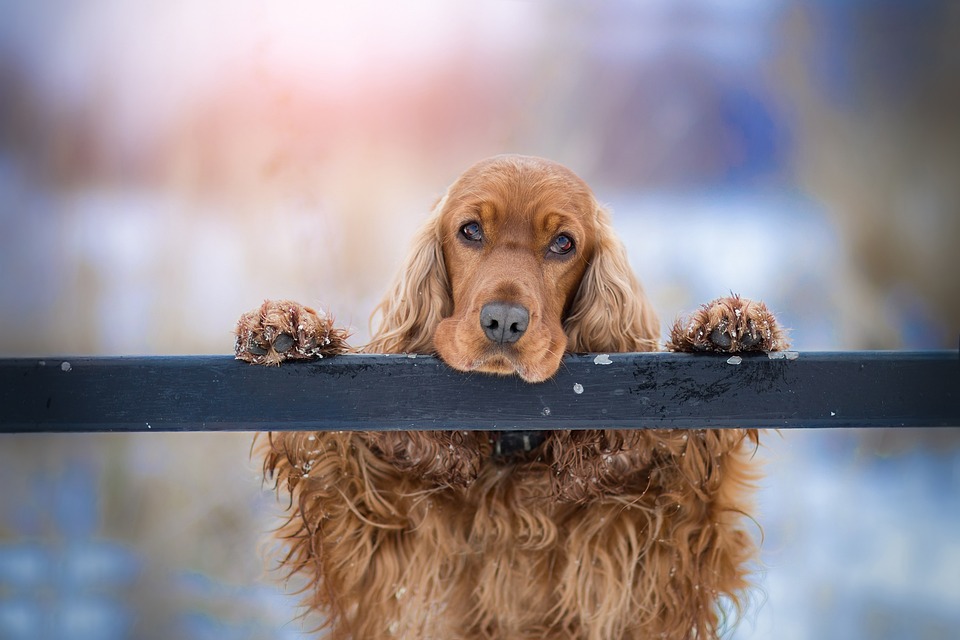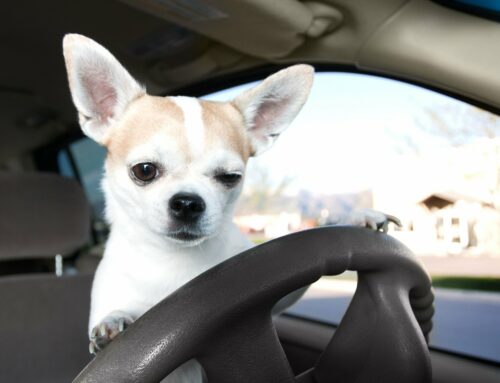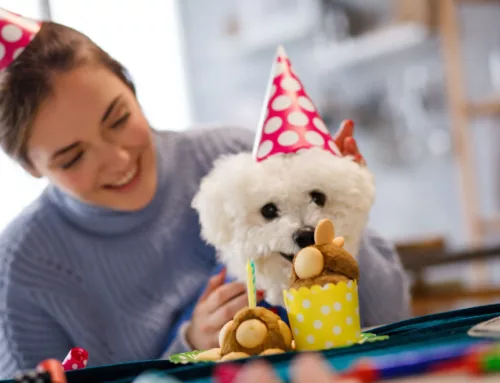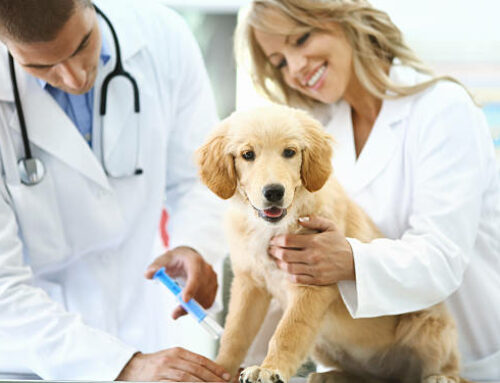There’s few things in life more exciting than bringing home a new puppy. However, with this day there also comes great responsibility. As a caring owner, it’s important to make sure your new companion not only stays healthy but has the best possible chance of developing into a confident and well-rounded adult dog.
While a naughty pup is likely to be met with laughter, a badly-behaved older dog isn’t likely to receive such a warm response. That’s why it’s crucial to start the training process as soon as possible. Read on to discover everything you need to know about puppy training.
The basics
No matter what stage you’re at in your puppy training journey, there are some basic tips and tricks you should make the most of throughout the process. Here’s some things you should keep in mind:
Incorporate food as part of training
Your puppy’s food is one of the best tools you can use to train your puppy. In the early months of having a new dog, having your puppy work for their food is an easy way to get and hold their attention on you, rewards them for doing so, and creates a positive association with looking to you for direction. It’s therefore a good idea to keep a treat pouch on or near them at all times in the beginning weeks. Having access to your pup’s food comes in handy for redirecting them away from something they’re doing that you don’t want them to do, getting them to come to you, having them focus on you to build that guidance-based relationship, and reward them for their good behaviours to encourage them to do that again.
Have patience
Puppy training can be exhausting at the best of times, and the process may take longer than you thought. It’s important to remember that puppies are young and still figuring out the world, so they are bound to make mistakes. It takes time to establish communication between yourself and your puppy, so don’t expect them to get it right on the first try.
Keep practising
Practice is the key to shaping a well-behaved dog. You’ll want to schedule a few short training sessions each day to teach and practise their commands – keeping in mind that with young puppies, you may only be able to hold their attention for 5-10 minutes at a time. It’s extra wise to schedule training around meal times for extra motivation.
Training guidelines by age
8-10 Weeks Old
This is around the age that many new puppy owners bring home their new puppy. At this stage, pups should be learning the basics such as their name, good manners at home, introducing some commands, and some early socialisation:
-
Potty training your puppy should start as soon as your puppy comes home. The best way to start potty training your pup is by incorporating a potty schedule to teach your pup where to go on the right spot, and how to hold it.
-
Introduce basic obedience commands ‘Sit’ & ‘Come’ at this stage. It’s a good idea to introduce these commands during mealtime. Start with some of your puppy’s food in your hand, let them smell it, and start taking backward steps away from them as you say “Come” with your hand extended out to lure them towards you. When they come to you, reward them with a “Good!” and the food. Next, you can teach them how to sit by arching your hand, with their food in it, up over their nose and past the top of their head as you say “Sit”, and when they obey, you should again say “Good!” and give them the food again. Say the word “Come” when your puppy is following you for their food and water bowls.
-
Start socialisation with your family and close friends first. Throughout your pup’s life they will encounter new people so getting them used to it early on will help them positively associate those interactions.
-
Name recognition is an important aspect of this early stage. When interacting with your pup, say their name throughout the day and get their attention on you while saying their name. Each time they look at you or come to you, you should reward them with excitement and food.
-
Start to redirect chewing and mouthing behaviours as they occur with the help of a chew toy. You’ll want to make sure that they know the difference between your hands, feet, and shoes from their chew toys.
10-12 Weeks Old
At this point, you will begin to expand on your pup’s commands, socialisation, and impulse control:
-
Introduce more basic obedience commands such as Place, Down, and Heel inside the home, still using food rewards.
-
Introduce the leash and harness to your puppy if you have not already done so at 8-10 weeks. These will be the two most utilised tools in your pup’s life when they are out and about with you. You can let your puppy get used to their harness and leash by letting them wear it around the house while you supervise them.
-
Continue socialisation by introducing new people and letting your puppy meet calm dogs post-vaccinations. As part of our Canine Behavioural Services, Bay Vets runs a Puppy Party Socialisation class aimed at puppies aged 9-16 weeks of age. This means your puppy can interact with other little friends in the most adorable meet and greet you’ll ever witness.
-
Impulse control practice by having your puppy wait for their food and water bowls. Ask them to Sit before setting down their bowls. Place their bowls down once they are calm and release them from sitting with a word like “Break” or “Okay”!
3-4 Months Old
You can start to work in more complex training routines with the commands they’ve learned:
-
Introduce Stay and Leave-It commands to your puppy.
-
Start command combinations and work indoors. Try to get your puppy practice duration work by holding their commands longer, for example, a long Sit and Stay, and also try to link some commands together. You can work on different combinations to really keep your puppy engaged.
-
Introduce structured play sessions, if you haven’t yet, of fetch and tug, which will also help improve their Drop-it, Come and Stay commands.
4-6 Months Old
At this point, your puppy should start to work on their commands outside your home and in public spaces, as well as continue to socialise:
-
Advance on their commands by practising them outside your home in the garden. Bring your puppy to a new location, such as the park, and practise their commands and some command combinations.
-
Extend your walks with your puppy to around your neighbourhood. Work on your puppy’s leash training and Heel command.
-
Start to wean your puppy off of food rewards at this point while they are training by asking for several commands first before giving a food reward, or by using praise or affection when they respond with the correct behaviour instead.
6 Months – 1 Year Old
Your puppy should know all of their basic commands and have a solid foundation of potty training and socialisation. From this point on, you will continue to work with your puppy to reinforce what they have already learned:
-
Continue to reinforce all the commands your puppy has learned. Introduce more distance between you and your pup as you practise their commands, have them hold commands for longer periods of time, and have more distractions to have them work through. Challenge your pup by bringing them to more populated areas with different distractions for them to work through and improve their skills.
-
Maintain structure at home – your puppy is in an adolescent phase and can act up if left to their own devices. It’s not uncommon for pups to start chewing, nipping, potty accidents, or other behaviours if their training and structure start to ease up at home. You may see regression in your pup’s training temporarily during this time, so it’s important to stick to your schedule and daily training sessions.
Canine Behavioural Services at Bay Vets
At Bay Vets, our Canine Behavioural Services help your dog grow into a happy, healthy and sociable companion. Bay Vets’ very own RVN Lauren Sykes offers a range of Canine Behavioural Services. With classes available from 9 weeks of age until they reach their senile years, Lauren uses her expertise to check the health of your dog and to train them – from Puppy Party Socialisation to Adolescent Checks, we’ve got everything on hand to meet the needs of your pup.
Bay Vets is a long established veterinary surgery operating in a range of locations that cover a range of services, from kitten check ups to animal vaccinations. Contact us by either emailing us at emailing info@bayvets.co.uk or by registering your pet online today.





